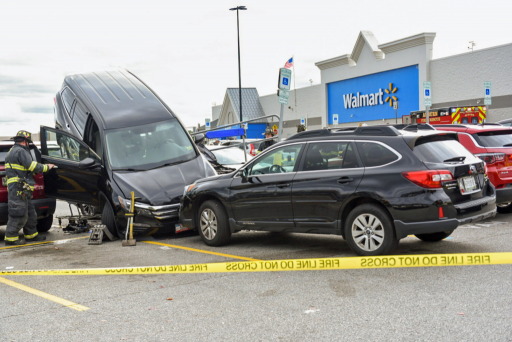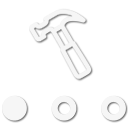Yes.
I do not like the integrated systems. I have read of situations such as the ABS system triggering a fault and then the computer will not allow you to shift into 4wd. That is totally unacceptable in my book. I have also read of folks who have had their computer go into some sort of failure mode that cannot be handled by a code reader, but rather must be addressed by a factory/dealership interface. That is also totally unacceptable.
I like my '96 XJ. From my experience with carburetors I do appreciated the merits of fuel injection, both for reasons of fuel slosh and for altitude compensation. And that is as modern as I am inclined to go. I do not have any desire for any of the newer features. They just look like failure modes to me.
However, it should be noted that I do my own work on my vehicle. I think most folks would have problems trying to maintain that which I maintain. I carry tools and spare parts. I have replaced my CPS (crankshaft position sensor) at the side of the highway. I have replaced my alternator in the driveway of a friend, 1,000 miles from home. I will also note that neither of those failures came with advance warning, and either of those failures could happen to a newer vehicle.
All choices come with their pros and cons, and every individual has a different risk threshold. Everyone needs to make their own decision.
That is not true, they go in to 4wd fine. You get some warnings like TC is disabled, or some other safety system is not working , cruise control might not work, but 4wd is fine, including on the newest Defender.
Yes your dash will be like a xmas tree, but you will get there.
On some very specific vehicles and situations like Landrovers and others that have full air suspention, a failed sensor might stop you from reaching off road height. Will this ruin your trip ? sure. Like any breakdown, either on a new of old vehicle.
Old vehicles they are fine, if don't have 2 left hands and do the work, overall TCO for sure is lower. It is a lot more budget friendly.
Are they superior on trail ? Not really. Statistically 100 % they will fail more often. There are limited repairs you can do on a trail, and the limit is not if the vehicle is new or old, is what you can carry as spare parts, access, tools, knowledge.
Can you wait for parts longer on newer vehicles ? For sure.
I have a wrangler 4xe. There are some parts specific to this model that you can wait for months. The plug in battery has a coolant heating element that can fail . You can wait 3 months for it, even more. Or the battery coolant pump, same thing. But I can still drive it and use it, just not in pure EV mode. That means I will not be stranded.
99 % of the problems it has are common Wrangler issues. Most of the issues that 4xe has are not from the new tech, but from the old one.
This old vs new debate is nothing new. I am old enough to remember when the tubeless tires showed up. OMG, you can't fix them on the trail .. they are so expensive, they are crap, an invention to waste our money. The fact that you could lower pressures transformed the 4x4 world, one of the 2 most significant progress in off road since the 70's . And everybody hated them when they were new.
The problem with new vehicles and tech is the policy of automakers, not that the tech is new. They heard that Data is the new gold, so now they are geared towards colleting as much as possible. They also limit access to tech data by exploiting loopholes in the regulation, or making it as hard as possible to get to it. in Europe is a lot worse than in US from this point of view.
I will never own a tesla, not because it is bad or is new tech, but because of Tesla's attitude and support towards supplying parts for 3'rd party shops and the non-existent aftermarket parts.
On the opposite side you have Ineos Grenadier -who is giving free access to manuals and parts to anyone for free. So no problem owning a new one, you can repair it yourself and what you ca repair on and off trails is you and what can carry as parts.












